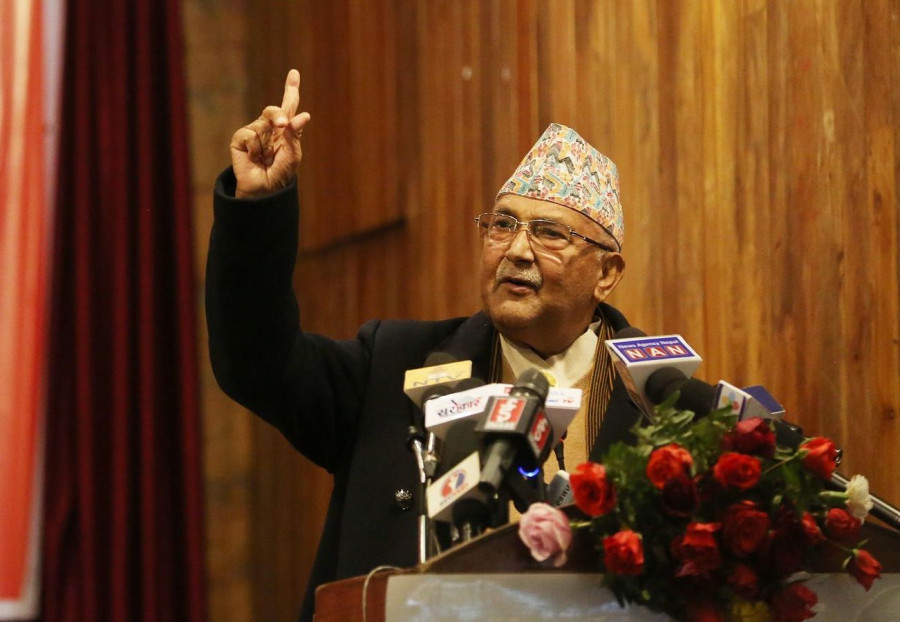Editorial
Youthful Oli
Top party leaders’ claim to forever be around only breeds cynicism among the change-hungry public.
Ageing is a strange beast. It tends to creep up on you. One day you wake up, go to the mirror and can hardly recognise the wrinkly stranger who stares back. Your life, you realise, has passed you by, in a jiffy. Yet some folks age more gracefully than others. There is a sense of accomplishment. They have done what they needed to do in life, and they now must pass the weight of responsibility to younger generations. But for others, age is a cruel reminder of their perceived lack of accomplishments, and this set of people cannot accept that time has come to leave the stage for new actors. Divorced from reality, they like living in their own fantasy-land. In this context, CPN-UML Chairman KP Sharma Oli’s assertion on Friday that he is getting younger by the day and even his white hair is now turning black was an exercise in denialism. It was also his unique way of putting the likes of Madhav Kumar Nepal and Jhala Nath Khanal—two former prime ministers from the UML that Oli named during a speech on Friday—in their place. Oli has also appeared uncomfortable with the idea of the return to the party of former President Bidya Devi Bhandari, ostensibly to lead her ex-party. In other words, Oli wants to cling on to his chairmanship, for as long as he can, by hook or by crook.
Following the party’s 2021 split, when senior leaders like Nepal and Khanal walked away, the UML became a one-man show. Oli has ensured that he has no immediate challenger and appears determined to lead the party at least into one more general election. Yet he seems to be perpetually looking over his shoulders for real or imagined enemies. Whatever his intent behind disclosing the ‘rude’ state of his heath, it only betrayed a deep sense of insecurity. If his health is good and he is running the party well, he hardly needs to make such juvenile boasts. The UML chair has august company on this score though. Oli’s Friday speech was indicative of the self-centred nature of modern-day Nepali politics. Yes, all politicians are ambitious, and all selfish to a degree. Yet the current set of top leaders of big parties—be it Sher Bahadur Deuba of the Nepali Congress, Oli of the UML or Pushpa Kamal Dahal of the Maoist Centre—all want absolute and indefinite control over their party.
The claim of an elder politician like Oli that he will be party chair for another 20 years and his party colleagues’ validation that he is indeed without any challenger will only breed more cynicism among the public who are clamouring for change. Efforts at building personality cults like Dahal’s in the Maoist Centre and Oli’s in the UML are particularly worrying and antithetical to the idea of a democratic system of governance. Perhaps it is this very sense of invulnerability that makes the leaders of the top three parties act like they control the country’s fate, that they can sit in a room and belt out any decision they want. This is but an illusion. They have as much control over the Nepali state as they have over their own mortality.




 10.12°C Kathmandu
10.12°C Kathmandu














